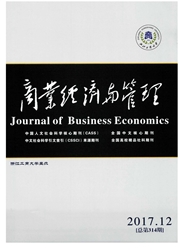

 中文摘要:
中文摘要:
全面分析与科学把握我国税收政策方向与节奏不仅事关政府宏观调控与驾驭经济能力的提升,更是实现有质量、有效益、可持续经济增长的关键。文章首先基于创新驱动经济增长的内生增长模型构建税收对经济增长影响的理论分析框架,然后采用MS-VAR模型与利用中国季度数据,从总量与结构双重视角实证考察我国税收政策对经济增长的影响,结果发现:一是当处于区制1时,无论是税收的总量抑或结构效应,均表现出非凯恩斯主义特征,但并不显著;二是当位于区制2时,税收对经济增长的总量影响表现为凯恩斯效应,而商品税与所得税对经济增长的影响存在显著差异。其中商品税与经济增长正相关,所得税与经济增长负相关。另外无论是税收的总量效应抑或结构效应,在继续维持各自区制内的稳定性方面表现都非常强,从一个区制向另一个区制发生转换的概率非常小。文章研究结论对于创新政府宏观调控方式与增强税收政策调控的前瞻性、针对性与有效性具有非常重要的理论与实际意义。
 英文摘要:
英文摘要:
A comprehensive analysis and scientific understanding of the direction and rhythm of the tax policy of China is not only related to the promotion of the government macro-control capability and the ability of managing economy, but is also the key to maintaining a growing, cost-effective and sustainable economy. Based on endogenous growth model of the innovation-driven economic growth, this thesis constructed the theoretical framework of the tax impact on economic growth and then adopted MS-VAR model and used China quarterly data to study the impact of tax policy on economic growth from the bilateral perspective of both the total volume and the structure. The results show that: when the model was in regime 1, both the total amount of the tax and the structural effect exhibited the non-Keynesian feature, but not evident. However, when the model is in regime 2, tax impact on the total amount of economic growth exhibit Keynesian effects, but there is significant difference between commodity tax and income tax on the eco-nomic growth. Still, the commodity tax and economic growth is positively related and the income tax negatively related. In addition, both the total effects and the structural effects of tax show so strong stability in maintaining their respective regimes that there is a small probability for them to transform from one regime to the other. The conclusion of this paper has remarkable theoretical and practical significance for the government to innovate its macro-control mode and make the tax policy more prospective, more targeted and more effective.
 同期刊论文项目
同期刊论文项目
 同项目期刊论文
同项目期刊论文
 期刊信息
期刊信息
